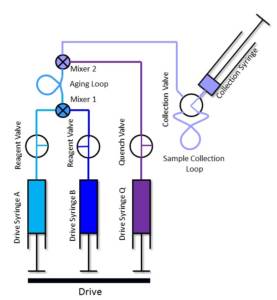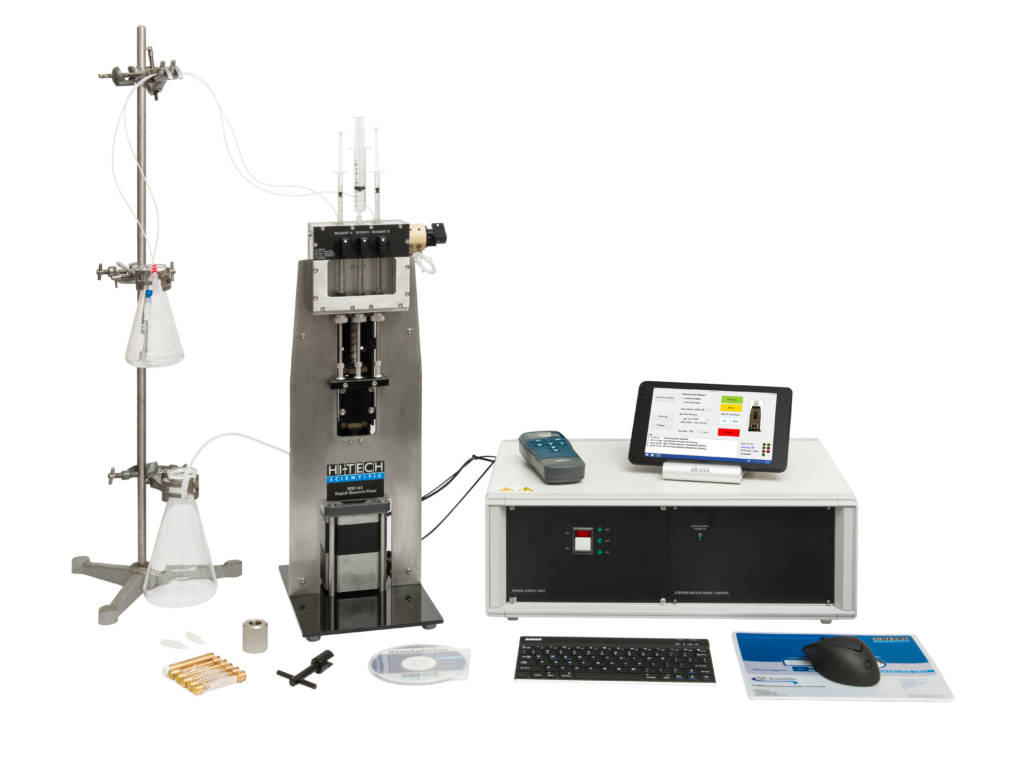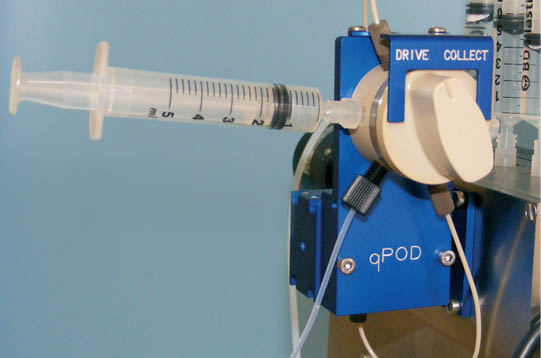Quench-Flow
Rapid quench-flow is a well established kinetic technique where the experimentalist can isolate intermediates and products within a reaction mechanism and analyse them by analytical methods providing a means of specifically identifying these components. This is a complementary technique to stopped-flow and can be used when the reaction does not contain spectroscopic changes or changes cannot identify specific reaction components.

Small volumes of solutions are driven through a high efficiency mixer and flow into a delay (or ageing) loop. After a set time, the reaction is stopped (or quenched) by the addition of a chemical quench solution.
This age time is controlled by the speed and duration of a single push, or by two pushes with a variable delay between them. By collecting a series of quenched samples, quenched at different times, the kinetics of the reaction can be determined using than appropriate analytical technique.
The rapid quench-flow systems (RQF-73) from TgK Scientific are capable of delivering quenched samples with ages from a few milliseconds to a 100 seconds with excellent reproducibility – Now featuring computer / tablet control with an enhanced feature set.
We also offer a quench-flow option for the double mixing KinetAsyst SF-61DX2 Stopped-Flow instrument, the qPod (OPT-647), providing a quenching device operating from approximately 30 ms to 250 s.
- AN.005.R63
Rapid quench-flow studies of enzymatic cleavage of covalently closed circular DNA
Keywords
- Rapid quench flow
- restriction enzyme
- recognition sequences
- EcoRV
References
- ¹Fritz K. Winkler and Dirk Kostrewa, Biochemistry 1995, 34, 683-696
- AN.024.Q73
Rapid quench-flow temporal calibration introducing a Windows application to control the sample delivery
Keywords
- Quench-Flow
- RQF-63
- RQF-73
- Temporal Calibration
- KinetaDrive
- AN.024.R73
Rapid quench-flow temporal calibration introducing a Windows application to control sample delivery.


